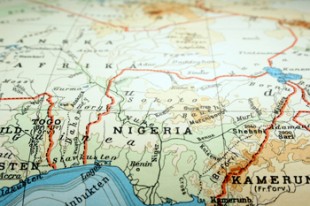The United States should not engage in the Nigerian civil war, according to a new policy paper from Rice University’s Baker Institute for Public Policy. The paper examines the implications of the civil war currently underway in Nigeria between the Salafi-jihadi group popularly called Boko Haram and the country’s military.
While there is some support among the United States foreign policy community for proactively combating Boko Haram, there are only extreme circumstances under which the U.S. should involve itself in the civil war; so far, this conflict does not coincide with those circumstances, according to the policy paper, “Boko Haram: A New Islamic State in Nigeria.”
“During the years since 2011, Boko Haram has morphed from being a local Salafi-jihadi group into a major player in West African radicalism,” said the paper’s author, David Cook, an associate professor of religion and Rice Scholar at the Baker Institute. “Its tactics have ranged from standard guerilla pin-prick attacks against governmental, military and Christian targets to sophisticated suicide attacks and mass slayings of target populations.”
Since July of this year, Boko Haram has clearly set the establishment of a physical Islamic state in Nigeria as its goal and has fought the Nigerian military to a draw, Cook said. “However, the Nigerian civil war is not one that commands much interest among Americans as a whole. Nor is it clear the manner in which aid for fighting Boko Haram could be rendered or what exactly would be the acceptable scope of such a conflict for the United States. That said, it is possible that with Boko Haram set upon the establishment of an Islamic state, there could come a set of circumstances under which this reality could change.”
Cook believes that it would be foolish for the U.S. government to involve itself with the fight against Boko Haram at this stage, “at least until the Nigerian government has established an adequate track record of transparency” in its efforts to combat the group.
The U.S. should be wary of a situation like that in Pakistan, where the elite might seek to prolong a given conflict to gain access to American military and financial resources, Cook said. “Certain elements of the Nigerian government and military are definitely set on U.S. involvement in the conflict,” he said. “This fact should make us all the more cautious about involvement.”
Cook studies early Islam, Muslim apocalyptic literature and movements for radical social change. His most recent books are “Understanding Jihad” and “Contemporary Muslim Apocalyptic Literature.”



Leave a Reply